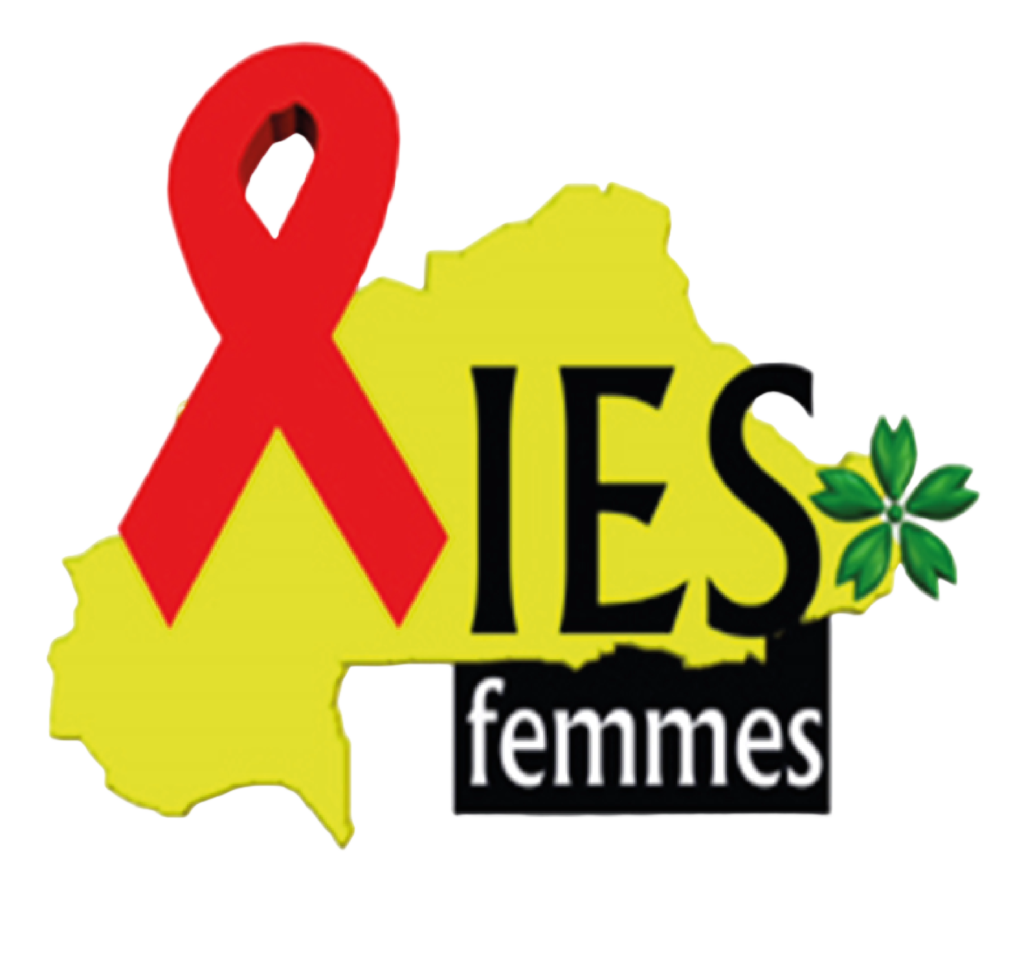Actuality
Stay Informed about Our Projects, Events and Achievements

Advocacy meeting of Palu IES authorities 2023
Report of the advocacy workshop bringing together 20 participants targeting the administrative and political authorities of the Bogodogo health district in order to engage them to ensure the effectiveness of measures to eliminate malaria
Reminder of context and justification
The global malaria report, released in December 2022, indicates that malaria claimed the lives of approximately 619,000 people in 2021, compared to 625,000 in 2020. There were some 247 million new cases of malaria in 2021, compared to 245 million in 2020. The WHO African Region continues to bear the heaviest burden of the disease. In 2021, it represented approximately 95% of all malaria cases (234 million) and 96% of all deaths (593,000). Nearly 80% of malaria deaths in the African Region were among children under five years old.
In Burkina Faso, despite the progress recorded, malaria remains a public health problem. According to statistical data from the national health information system, malaria remains the leading reason for consultation (42.2%), hospitalization (50.75%) and death (13.9%) in health facilities. Thus our country recorded in 2022, 11,656,675 cases of malaria with unfortunately 4,243 deaths. Malaria occurs all year round, with a seasonal increase during the rainy season. Pregnant women and children under five pay the heaviest price. Malaria, in addition to being a public health problem, is a development problem.
Like the entire country, malaria remains the number one reason for consultation in the central region. According to the 2022 statistical yearbook, 1,400,565 cases of malaria including 451 deaths were reported in basic health facilities in the central region. The Bogodogo district, for its part, records 419,260 cases with 11 deaths linked to malaria in 2022.
To support the government’s actions in favor of the fight to eliminate malaria, civil society organizations have engaged through social mobilization, awareness-raising and advocacy actions.
It is in this perspective that the IES/FEMMES association, in collaboration with SP/Palu and Speak Up Africa, plays an essential role by implementing an advocacy action plan, aims to mobilize leaders for active engagement in the fight against malaria, by strengthening the implementation of prevention measures in the Bogodogo health district.
Reminder of the objectives of the meeting
The objectives pursued by this meeting were to:
- Increase the knowledge of administrative and political authorities on the impact of malaria on health and local development.
- Present current measures and strategies to combat malaria and their effectiveness.
- Encourage administrative and political authorities to commit to ensuring the effective implementation of measures to eliminate malaria in the Bogodogo health district
- Facilitate collaboration between administrative and political authorities to strengthen actions to combat malaria.
Reminder of expected results:
The expected results of carrying out the activity were:
- Increased understanding of the importance of fighting malaria among participants.
- The commitment of administrative and political authorities to actively support initiatives to combat malaria in the BOGODOGO health district
- Concrete discussions on specific actions to be undertaken to strengthen the fight against malaria in the Bogodogo health district
Progress of the activity:
- Opening ceremony :
The presidium was composed of the secretary general of Kadiogo province, the representative of Speak Up Africa and the representative of CCM;
The opening ceremony of the workshop was marked by a welcome address from the president of the IES/FEMMES association followed by the opening speech of the Secretary General of the Kadiogo province, representing the High Commissioner of the Kadiogo province.
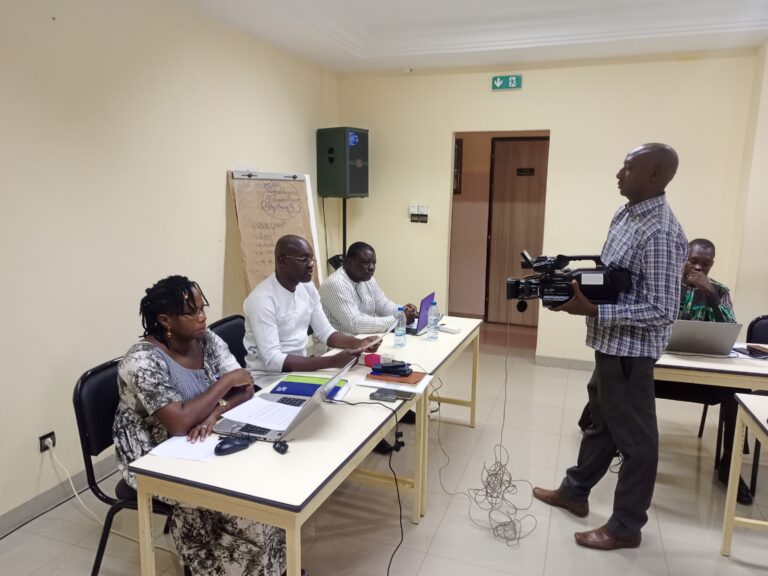
Presidium composed from left to right of: the president of IES/FEMMES, the secretary general of the Kadiogo province and the representative of CCM Burkina
The president of IES/FEMMES spoke with honor to the authorities, emphasizing the importance of their presence at the advocacy workshop to eliminate malaria in Bogodogo. She cited Nelson Mandela to illustrate the continuing challenge of malaria. Recognizing the gravity of statistics, she recalled the human impact behind each number. However, she instilled hope, quoting Martin Luther King Jr., emphasizing the importance of perseverance. She expressed gratitude for their commitment and called for collective action to shape a malaria-free future.
Then it was the turn of the secretary general of Kadiogo province, representing the High Commissioner, who opened the meeting by emphasizing collective responsibility for health. He identified malaria as a persistent challenge, highlighting the affected lives behind the statistics. He called for the unity of administrative, customary, religious and media leaders to mobilize communities.
Denouncing malaria as an obstacle to development, he praised government efforts while emphasizing the need for collective support to succeed. He assigned specific roles to authorities, traditional and religious leaders, as well as the media to raise awareness and take action.
Highlighting the potential benefits of collective engagement, he called for words to be transformed into concrete actions to reverse the trend of malaria, protect families and build resilient communities.
Presentation of the participants:
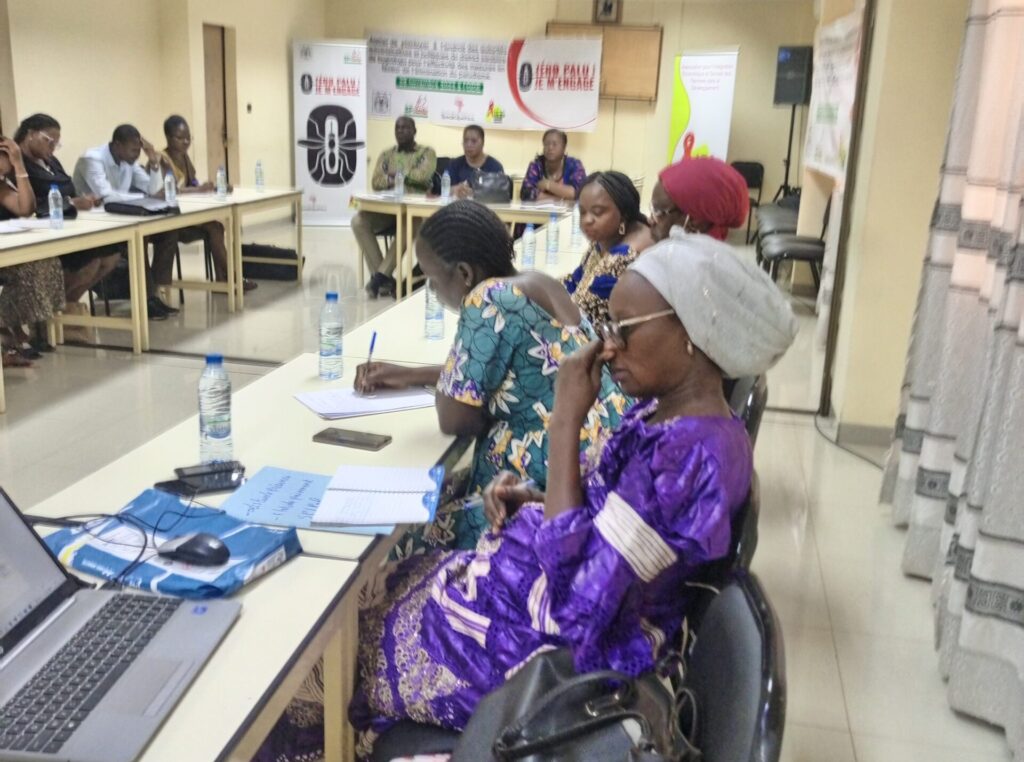
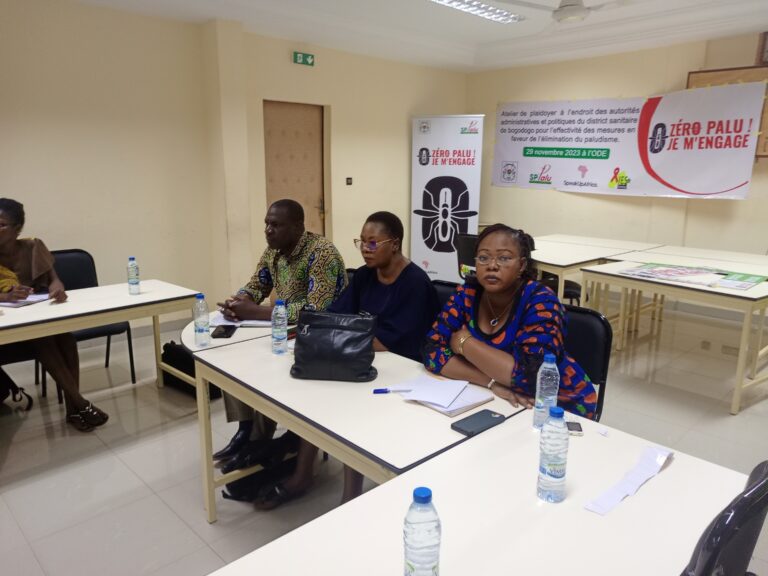
Communications :
The first communication was made by the chief medical officer of the Bogodogo health district and is as follows:
Dr PAGBELGUEM, chief medical officer of the Bogodogo health district, presented the epidemiology of malaria in the region. He highlighted the scale of the problem, including statistics of simple and serious cases as well as deaths, highlighting the impact on consultations, hospitalizations and deaths, particularly among children under five years old.
He discussed measures to combat malaria, including drug prevention with Intermittent Preventive Treatment in pregnant women and Seasonal Malaria Prevention Chemotherapy in children. He also discussed vector control, hygiene, and other preventive approaches.
The doctor outlined challenges such as adequate coverage, adherence to treatments, and highlighted opportunities with the involvement of civil society, community leaders
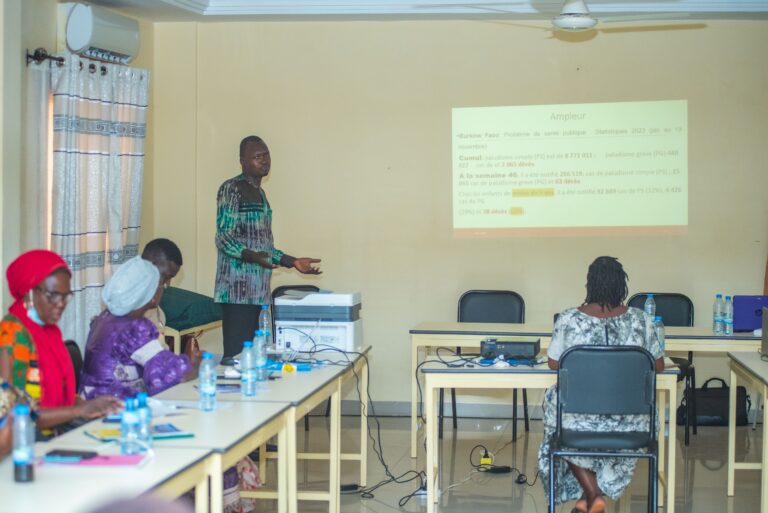
Communication from the head doctor of the Bogodogo health district
The second communication:
The IES/FEMMES monitoring-evaluation officer presented a plea to mobilize the commitment of administrative, political, community leaders and media authorities in the fight against malaria in the Bogodogo health district.
He outlined the global context of malaria, highlighting the alarming figures of deaths and new cases, particularly in Africa, with a predominance among children under five years old. At the national level, despite progress, malaria remains a major public health problem, impacting consultations, hospitalizations and deaths.
The issues of malaria were addressed, highlighting the massive expenditure in financial and technical resources, the consequences on the development of children, the risk for pregnant women, and its direct link with infant mortality.
He also presented the role of the authorities, highlighting the actions of the government and the Permanent Secretariat for the elimination of Malaria with the aim of eliminating this disease by 2030. He insisted on the importance of the media and leaders in raising awareness, disseminating precise information and mobilizing the population.
Expectations towards religious and customary leaders, civil society and the media have been clearly defined, particularly in terms of awareness, mobilization, and supervision of actions to combat malaria.
Finally, specific expectations were stated towards administrative and political authorities for the application of hygiene measures, the allocation of specific budgets, and the promotion of regular community actions to fight malaria.
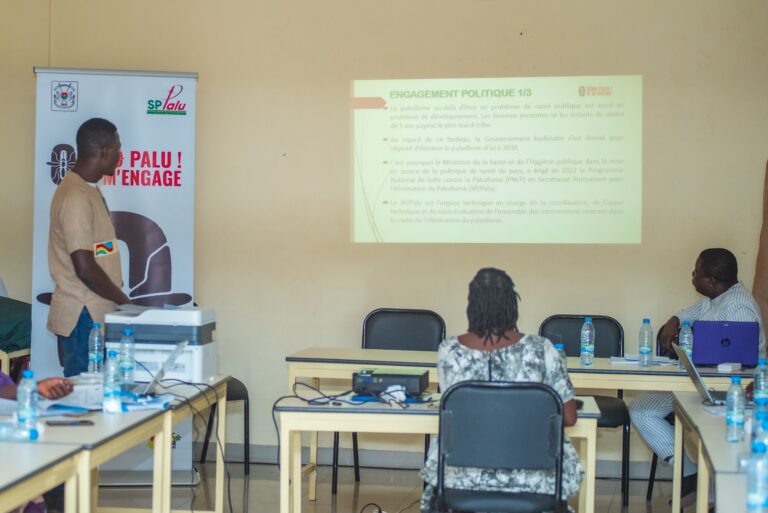
Communication du chargé de suivi-évaluation de IES/FEMMES
These two presentations were followed by exchanges through questions and answers, contributions and proposals:
The discussions :
During discussions on malaria in the Bogodogo health district, several topics were raised. Local authorities have been called upon to decentralize budgets and act more effectively. Problems with popularizing texts and reactive actions were noted, highlighting insufficient budgets for cleaning gutters and health training at community level. The idea of involving communities in national malaria control days was put forward, as was the need to increase the visibility of the malaria control service (SP Palu).
At the same time, speakers suggested expanding awareness, starting a month before the rainy season, and creating a collective of local elected officials against malaria. The recommendation to allocate specific resources to communities to fight malaria was raised with the MSHP (Ministry of Health and Public Hygiene)
The discussions also addressed more targeted issues such as the need to administer preventive treatment up to 15 years of age, to extend the distribution of preventive drugs to other age groups and to provide information on the R21 vaccine. Concerns about side effects of preventative medications in pregnant women and children were shared.
The head doctor of the Bogodogo health district welcomed these discussions, highlighting the importance of individual actions and instructions for the SMC. He highlighted the invitation made to PDS for specific presentations on malaria, the need for earlier awareness campaigns despite financial constraints and the importance of reporting refusals for targeted interventions. He also highlighted the “One Health” initiative, involving various sectors, as well as the need to collaborate to manage waste and popularize sanctions.
Commitments and next steps:
At the end of the exchanges and discussions, all administrative authorities decided to commit to ensuring the effective implementation of measures to eliminate malaria in the health district of Bogodogo and to popularize the texts and laws on hygiene and sanitation of the living environment. These commitments were materialized by taking photos.
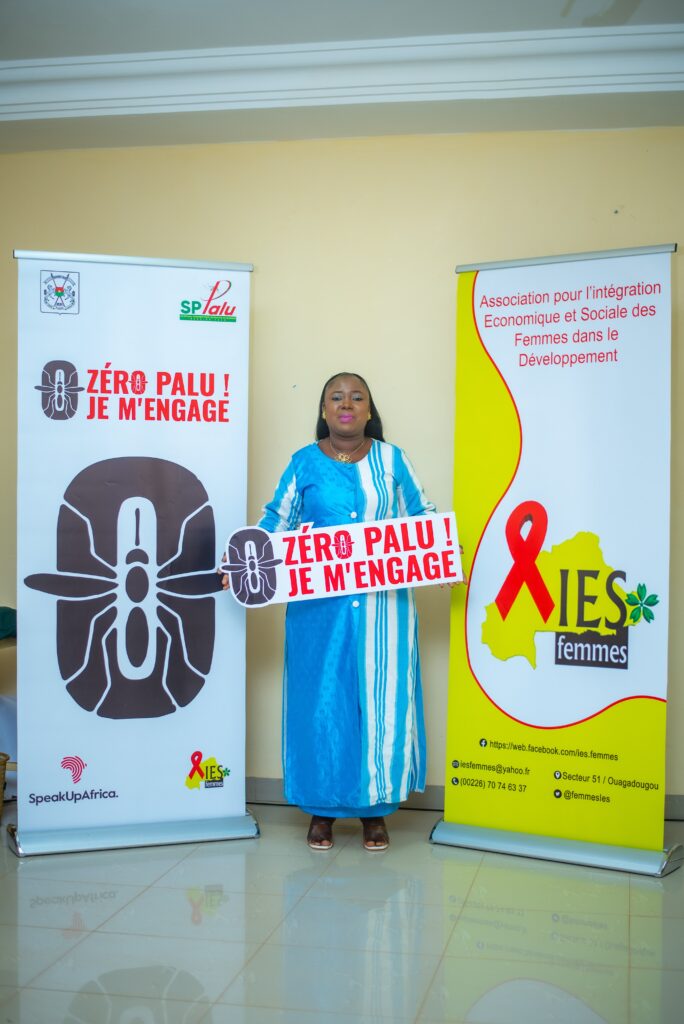
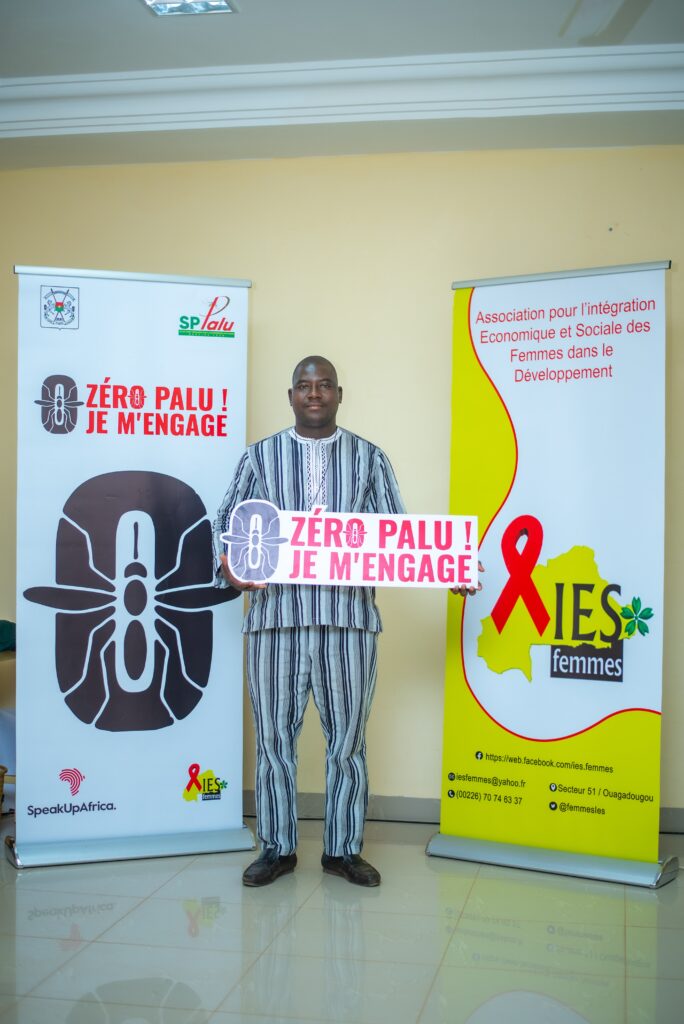
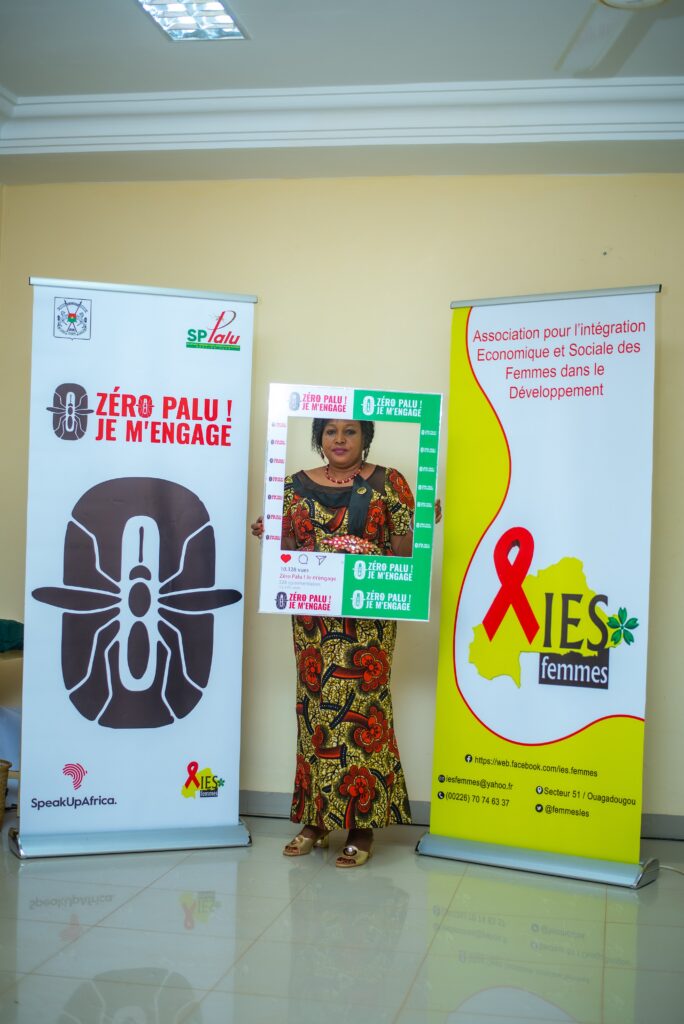
Commitment photos of the administrative authorities of the Bogodogo health district
Following the commitments, the next steps were announced, namely: follow-up outings to verify the implementation of the commitments made in particular.
Fence :
The session concluded with words from the representative of the CCM (Country Coordinating Mechanism), the coordinating body for Global Fund grants dedicated to the fight against tuberculosis, HIV/AIDS and malaria. He expressed his gratitude to all the participants for their commitment in the fight against this disease, crucial public health issues in our country. He thus officially closed the work of the advocacy workshop
